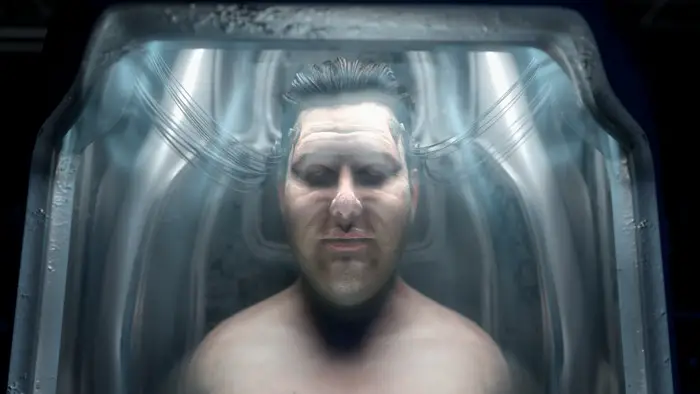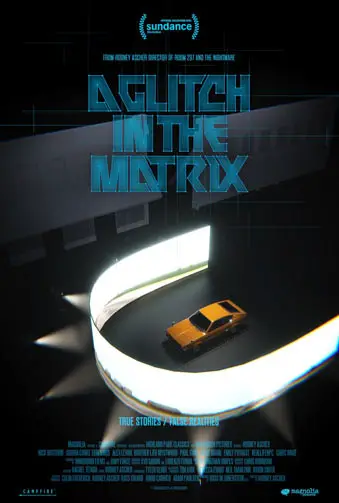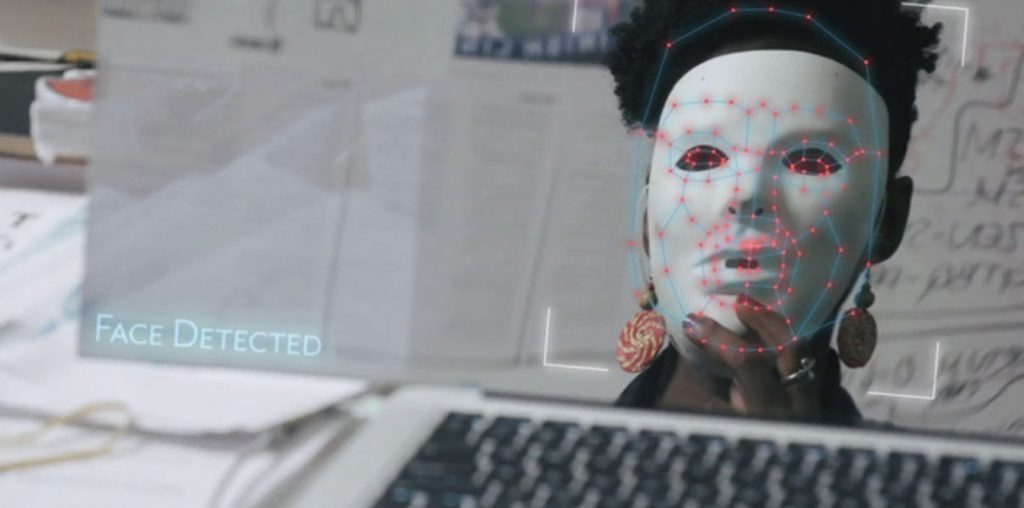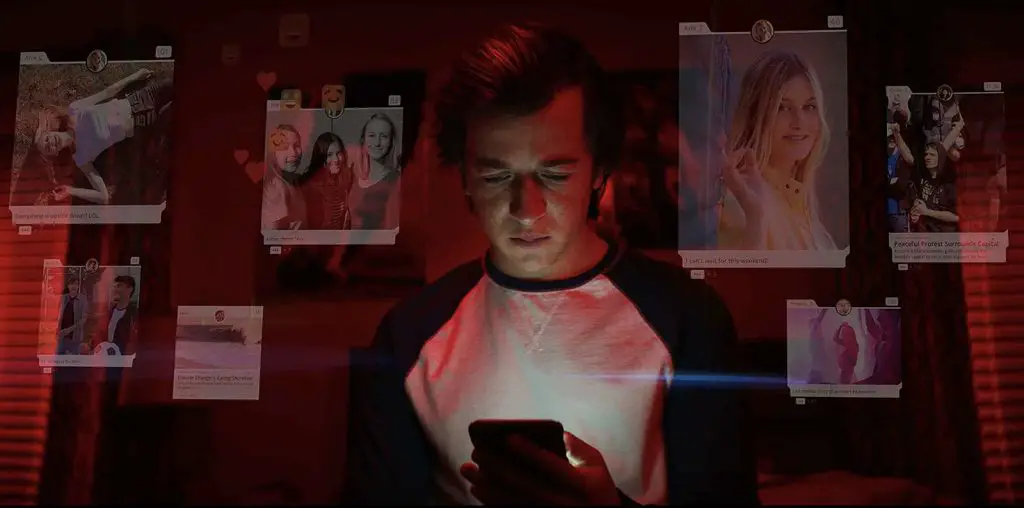
In cinema, The Wachowskis created the ultimate paranoid fantasy adventure about simulation theory, which is, of course, The Matrix. The title of this doc comes from that film—the glitch being a brief moment of reality stuttering that indicates the simulation has been changed in some way.
The filmmaker presents interviews with people whose subjective experiences have convinced them that they are living in a simulation. They speak through remote digital video, and mostly they use game style avatars instead of their human appearance. The movie spends almost no time on the scientific exploration of the simulation hypothesis but rather focuses on these subjective experiences described. The result feels like Duncan Trussell’s The Midnight Gospel, with outlandish animated characters speaking in ordinary human voices, discussing events that make it sound like they’ve had a psychotic break at some point. This gets tiresome. It feels like someone breathlessly telling you their dreams. Their experience was real, perhaps even profound to them, but it’s meaningless to you.

Courtesy of Sundance Institute.
“…feels like someone breathlessly telling you their dreams.”
Ascher chose to end on a sensationalist, unnecessary 10-minute piece in which convicted murderer Joshua Cooke describes how his obsession with The Matrix (and the music of Drowning Pool) caused him to kill his adoptive parents in 2003 (fact check: It was actually schizophrenia, probably caused by horrific abuse). One could excise that whole segment without negatively impacting the documentary. It adds nothing to the discussion.
A Glitch in the Matrix is timely and full of mystery and wonder, but lingering on descriptions of surreal subjective experience misses the point. This would be a much more interesting movie if it had more focus on the science of simulation theory.
A Glitch in the Matrix screened at the 2021 Sundance Film Festival.

"…the suspicion that reality is an illusion goes all the way back to ancient Greek philosophy..."


